About
Who we are
Faculty:
Laia Castro
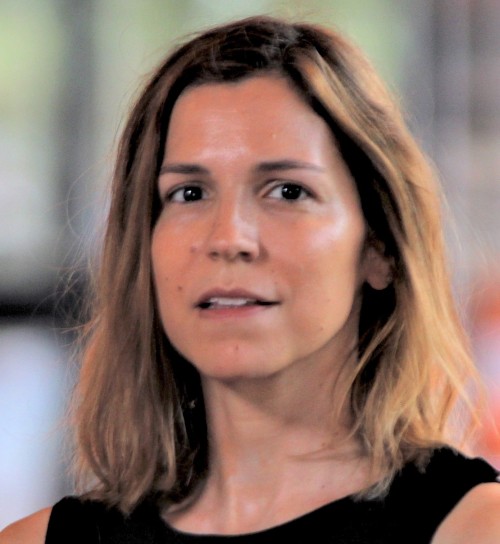 Laia Castro (PhD, University of Fribourg) is an assistant professor at the department of Political Science, University of Barcelona. She specializes in political communication, comparative media research & public opinion, with a particular focus on cross-cutting exposure and communication across political lines. Currently, she does empirical work on the deliberative and informative potential of social media by use of quantitative and computational methods.
Laia Castro (PhD, University of Fribourg) is an assistant professor at the department of Political Science, University of Barcelona. She specializes in political communication, comparative media research & public opinion, with a particular focus on cross-cutting exposure and communication across political lines. Currently, she does empirical work on the deliberative and informative potential of social media by use of quantitative and computational methods.
Laura Chaqués
 Laura Chaqués Bonafont is a Professor of Political Science at the University of Barcelona and the director of the Institut Barcelona d’Estudis Internacionals (IBEI). She holds a Ph.D. in Political Economy from the Universitat de Barcelona and a Master’s in Political Science from the New School of Social Research in New York. With an extensive academic background, she has served as a visiting professor at institutions such as the University of Washington, the University of North Carolina at Chapel Hill, and King’s College London. She leads the research group “Quality of Democracy” (www.Q-Dem.com), which analyzes the interplay between governmental, parliamentary, and media from a comparative perspective. Her work bridges policy dynamics research with key areas of political science, including political representation, interest groups, and the quality of democracy in multilevel governance systems. The project has contributed to developing quantitative measurement tools for policy dynamics and offers numerous datasets accessible at www.q-dem.com. Her research excellence has been recognized with various awards, including the Icrea Academia Award. Her primary research interest is the comparative analysis of agenda dynamics, specifically focusing on the roles of interest groups, political elites, and social media, and the regulation of Artificial Intelligence.
Laura Chaqués Bonafont is a Professor of Political Science at the University of Barcelona and the director of the Institut Barcelona d’Estudis Internacionals (IBEI). She holds a Ph.D. in Political Economy from the Universitat de Barcelona and a Master’s in Political Science from the New School of Social Research in New York. With an extensive academic background, she has served as a visiting professor at institutions such as the University of Washington, the University of North Carolina at Chapel Hill, and King’s College London. She leads the research group “Quality of Democracy” (www.Q-Dem.com), which analyzes the interplay between governmental, parliamentary, and media from a comparative perspective. Her work bridges policy dynamics research with key areas of political science, including political representation, interest groups, and the quality of democracy in multilevel governance systems. The project has contributed to developing quantitative measurement tools for policy dynamics and offers numerous datasets accessible at www.q-dem.com. Her research excellence has been recognized with various awards, including the Icrea Academia Award. Her primary research interest is the comparative analysis of agenda dynamics, specifically focusing on the roles of interest groups, political elites, and social media, and the regulation of Artificial Intelligence.
Xavier Fernández-i-Marín
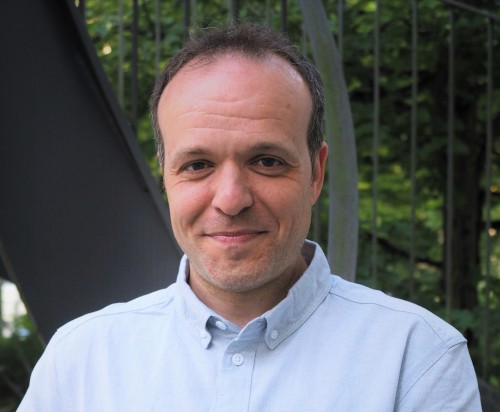 “Ramón y Cajal” fellow at the Universitat de Barcelona, developing and tailoring solutions for social science research methods, including current developments in Bayesian inference, data visualization, probabilistic programming, experimental designs and machine learning. I have substantial contributions in comparative politics, public administration, public policy, international relations and psychology. I have worked in the fields of global governance and IGOs, the diffusion of policies and institutions and the processes of development of regulatory agencies. I work also on Internet and e-Government diffusion and other related aspects of the public management of the Information Society, lately including the adoption of Artificial Intelligence in public administrations.
“Ramón y Cajal” fellow at the Universitat de Barcelona, developing and tailoring solutions for social science research methods, including current developments in Bayesian inference, data visualization, probabilistic programming, experimental designs and machine learning. I have substantial contributions in comparative politics, public administration, public policy, international relations and psychology. I have worked in the fields of global governance and IGOs, the diffusion of policies and institutions and the processes of development of regulatory agencies. I work also on Internet and e-Government diffusion and other related aspects of the public management of the Information Society, lately including the adoption of Artificial Intelligence in public administrations.
Aina Gallego
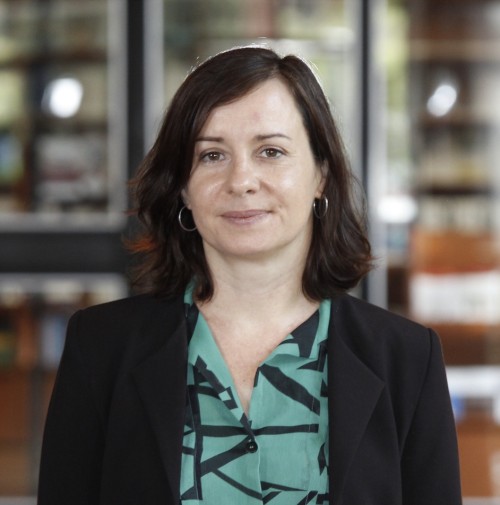 Aina Gallego is an Associate Professor of Political Science at the Universitat de Barcelona and a Research Associate at the Barcelona Institute for International Studies (IBEI). She holds a PhD in Political Science from the Universitat Autonoma de Barcelona (2008) and was a post-doctoral scholar at Stanford University and at the Spanish High Research Council. Her early research focused on inequalities in political participation across the world. She has also worked extensively on representation and political elites. Her current research agenda investigates the political consequences of technological change, including artificial intelligence (AI), focusing on workers vulnerable to technological displacement.
Aina Gallego is an Associate Professor of Political Science at the Universitat de Barcelona and a Research Associate at the Barcelona Institute for International Studies (IBEI). She holds a PhD in Political Science from the Universitat Autonoma de Barcelona (2008) and was a post-doctoral scholar at Stanford University and at the Spanish High Research Council. Her early research focused on inequalities in political participation across the world. She has also worked extensively on representation and political elites. Her current research agenda investigates the political consequences of technological change, including artificial intelligence (AI), focusing on workers vulnerable to technological displacement.
Gaël Le Mens
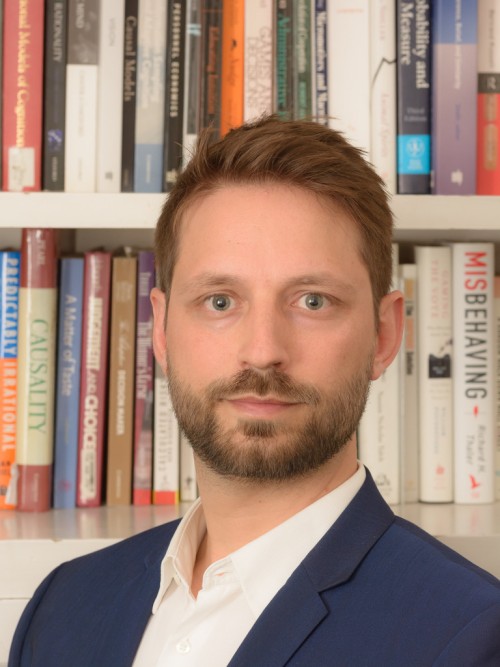 My research focuses on learning by individuals and organizations. Several of my papers explain how individuals might develop and maintain inaccurate beliefs because they rely on the biased samples of information they obtain from their experiences. The information used for learning may be biased because more information is available about alternatives that decision makers believe to be good and thus sample again, whereas less information is available about alternatives that decision makers believe to be poor and thus avoid. In addition, the information to which individuals have access also depends on the opportunities the social context provides them with for learning about alternatives they might otherwise avoid.
My research focuses on learning by individuals and organizations. Several of my papers explain how individuals might develop and maintain inaccurate beliefs because they rely on the biased samples of information they obtain from their experiences. The information used for learning may be biased because more information is available about alternatives that decision makers believe to be good and thus sample again, whereas less information is available about alternatives that decision makers believe to be poor and thus avoid. In addition, the information to which individuals have access also depends on the opportunities the social context provides them with for learning about alternatives they might otherwise avoid.
Students
Brady Allardice
 Brady Allardice is a PhD student in Political Science at the Universitat Pompeu Fabra (UPF). He completed his Bachelor’s degree in Political Science at Clemson University, a Master’s degree in Economics at the Barcelona School of Economics, and a Research Master’s degree in Political Science at the UPF. His research focuses on the interplay between technology and politics, with particular attention to how automation impacts political and social outcomes. His interests include the contestation of technological change and the role of institutions in shaping technological adoption.
Brady Allardice is a PhD student in Political Science at the Universitat Pompeu Fabra (UPF). He completed his Bachelor’s degree in Political Science at Clemson University, a Master’s degree in Economics at the Barcelona School of Economics, and a Research Master’s degree in Political Science at the UPF. His research focuses on the interplay between technology and politics, with particular attention to how automation impacts political and social outcomes. His interests include the contestation of technological change and the role of institutions in shaping technological adoption.
Florencia Olivares G.
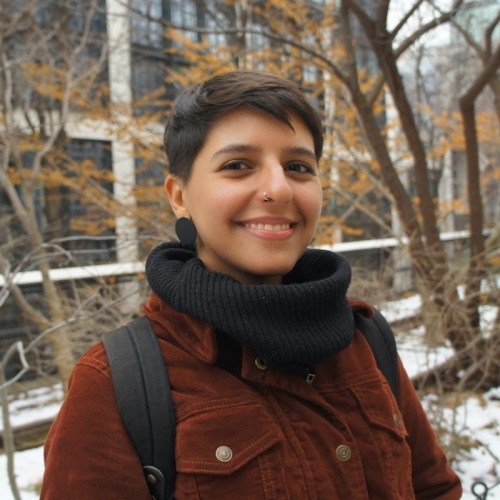 Florencia Olivares is a PhD student in Political Science at the Universitat de Barcelona (UB). She completed her Bachelorns and Master’s degree in political science at Pontificia Universidad Católica de Chile, and subsequently attained a Master in Political Analysis and Institutional Assessment at UB. Her research interests include technological change and digital inequalities, experiments, gender, institutional politics and representation, and social media studies.
Florencia Olivares is a PhD student in Political Science at the Universitat de Barcelona (UB). She completed her Bachelorns and Master’s degree in political science at Pontificia Universidad Católica de Chile, and subsequently attained a Master in Political Analysis and Institutional Assessment at UB. Her research interests include technological change and digital inequalities, experiments, gender, institutional politics and representation, and social media studies.
David García
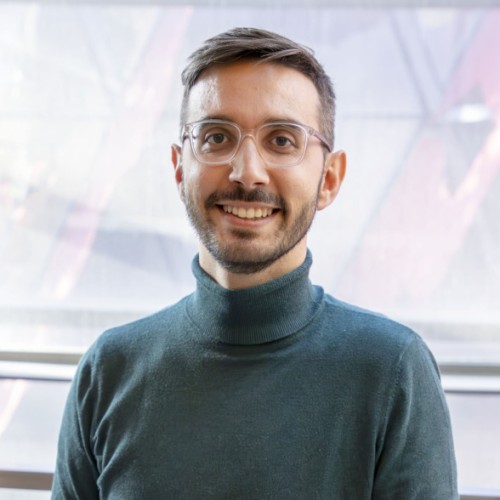 David García-García is a predoctoral FPI research fellow at IBEI (Institut Barcelona d’Estudis Internacionals) in the framework of the research project “Agenda Dynamics on Social Media” (ADSOM) coordinated by Prof. Laura Chaqués-Bonafont. He is a PhD candidate in the Law and Political Science programme at the Universitat de Barcelona (UB). His research interests include political implications of technological changes, the political behaviour on social media and Artificial Intelligence regulation. David has taught International Public Law at the Universidad de Huelva. He holds a Master’s degree in Cybercrime from the Universitat Oberta de Catalunya as well as a dual bachelor’s degree in Law and Political Sciences from the Universidad Pablo de Olavide.
David García-García is a predoctoral FPI research fellow at IBEI (Institut Barcelona d’Estudis Internacionals) in the framework of the research project “Agenda Dynamics on Social Media” (ADSOM) coordinated by Prof. Laura Chaqués-Bonafont. He is a PhD candidate in the Law and Political Science programme at the Universitat de Barcelona (UB). His research interests include political implications of technological changes, the political behaviour on social media and Artificial Intelligence regulation. David has taught International Public Law at the Universidad de Huelva. He holds a Master’s degree in Cybercrime from the Universitat Oberta de Catalunya as well as a dual bachelor’s degree in Law and Political Sciences from the Universidad Pablo de Olavide.
Erick Stivens Padilla-Galviz
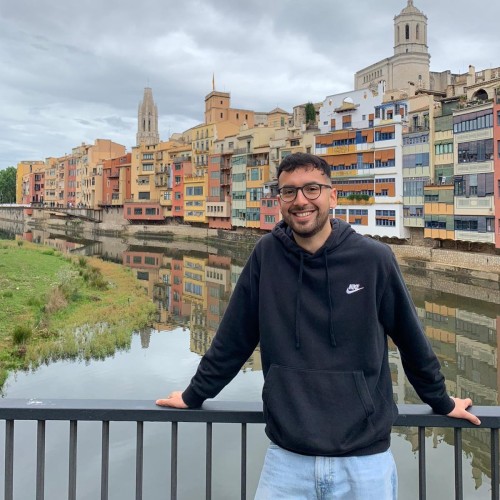 Erick Padilla is a PhD student in Political Science at the Universitat de Barcelona (UB). He earned his Bachelor of Arts degree in Political Science from the Universitat de València and completed a Master of Research in Political Science at the Universitat Pompeu Fabra (UPF). Prior to his enrolment at UB, he served as a research assistant at the Barcelona Centre for European Studies at UPF. His primary areas of research focus on the intersection of technological change, political behaviour, and political elites.
Erick Padilla is a PhD student in Political Science at the Universitat de Barcelona (UB). He earned his Bachelor of Arts degree in Political Science from the Universitat de València and completed a Master of Research in Political Science at the Universitat Pompeu Fabra (UPF). Prior to his enrolment at UB, he served as a research assistant at the Barcelona Centre for European Studies at UPF. His primary areas of research focus on the intersection of technological change, political behaviour, and political elites.
Júlio Pérez
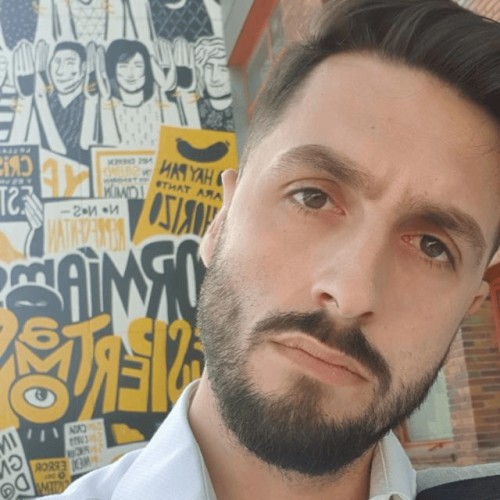 Julio Pérez Hernanz is a PhD student in Law at the University of Barcelona and Political Science, Administration and International Relations at UCM. He graduated in Political Science from UCM with a Master’s in Big Data from UCAM and obtained his bachelor’s in law from UCM, complemented by a Master’s in Human Rights from the University of Valencia. Julio collaborates as an honorary member of the Complutense Institute of Administration Science, is a participant in the Legal Tech Lab at the University of Valencia and the youth group of the European Movement. His previous involvements include collaboration with the Human Rights Legal Clinic at the University of Valencia. Currently, his main research topic is artificial intelligence.
Julio Pérez Hernanz is a PhD student in Law at the University of Barcelona and Political Science, Administration and International Relations at UCM. He graduated in Political Science from UCM with a Master’s in Big Data from UCAM and obtained his bachelor’s in law from UCM, complemented by a Master’s in Human Rights from the University of Valencia. Julio collaborates as an honorary member of the Complutense Institute of Administration Science, is a participant in the Legal Tech Lab at the University of Valencia and the youth group of the European Movement. His previous involvements include collaboration with the Human Rights Legal Clinic at the University of Valencia. Currently, his main research topic is artificial intelligence.
Julià Tudó
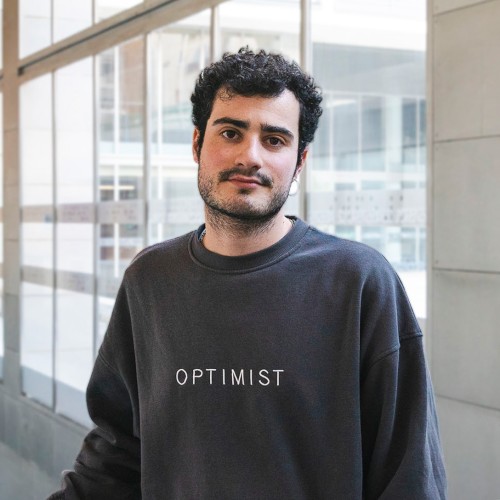 Julià Tudó Cisquella is a PhD student in Political Science at the University of Bergen, Norway. He holds a Bachelor of Arts degree in Political Science from Pompeu Fabra University and a Master’s in Democracy and Government from the Autonomous University of Madrid (UAM). Before starting his PhD, he worked as a research assistant in various groups, both at the UAM and the University of Barcelona. His research focuses on the political consequences of climate change, political agenda dynamics and party positions, with a specific focus on conservative and radical-right parties.
Julià Tudó Cisquella is a PhD student in Political Science at the University of Bergen, Norway. He holds a Bachelor of Arts degree in Political Science from Pompeu Fabra University and a Master’s in Democracy and Government from the Autonomous University of Madrid (UAM). Before starting his PhD, he worked as a research assistant in various groups, both at the UAM and the University of Barcelona. His research focuses on the political consequences of climate change, political agenda dynamics and party positions, with a specific focus on conservative and radical-right parties.
Institutions
We have support from the following Universities and Research Centers:
- Universitat de Barcelona
- IBEI, Institut Barcelona d’Estudis Internacionals
- Universitat Pompeu Fabra
Grants
We are grateful for the funding provided by ICREA (Catalan Institution for Research and Advanced Studies).
